| Summary page of all the backlist packages available. | [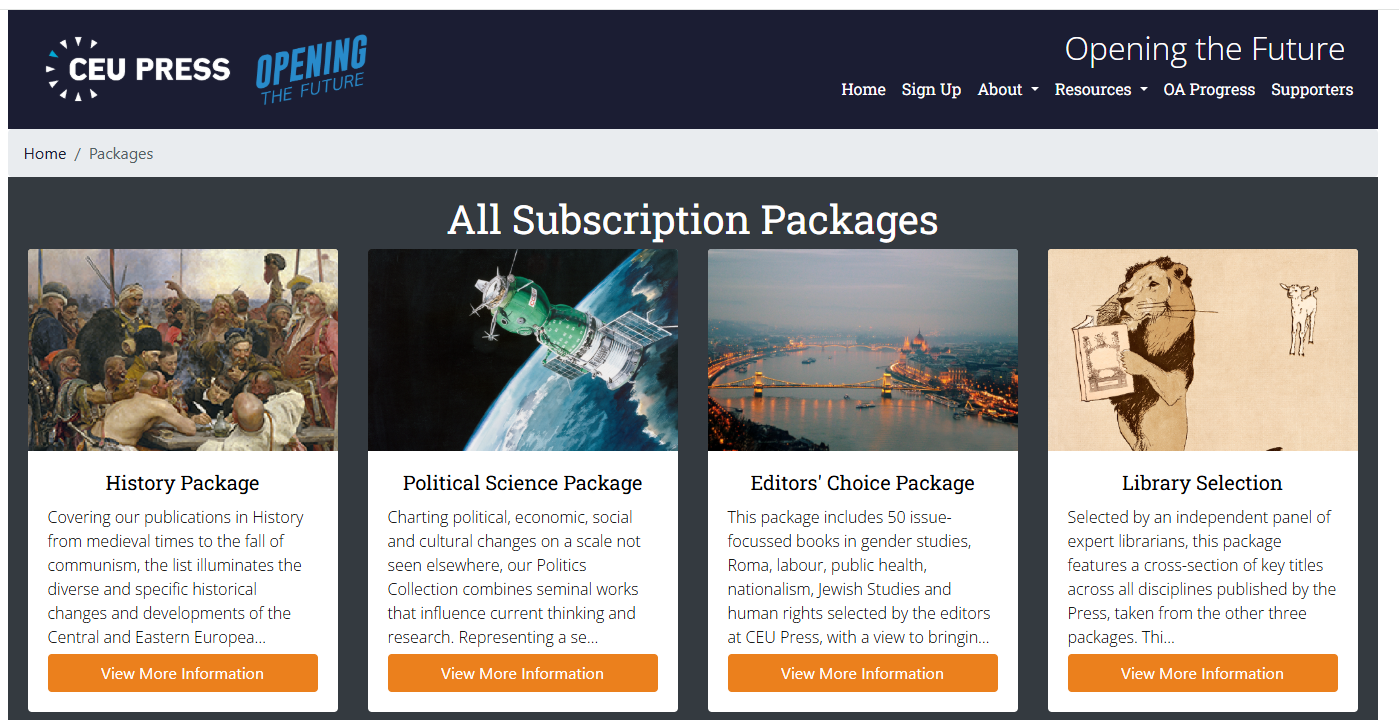](https://compass.copim.ac.uk/uploads/images/gallery/2025-01/ceup-subscripion-packages-page.png) |
| Clear description of package themes and topics and why the book selection is relevant and important.
Downloadable MS Excel spreadsheet of title list, authors and basic metadata.
Easy one click link to sign up.
Table of membership fees by year and tiered by library size.
| [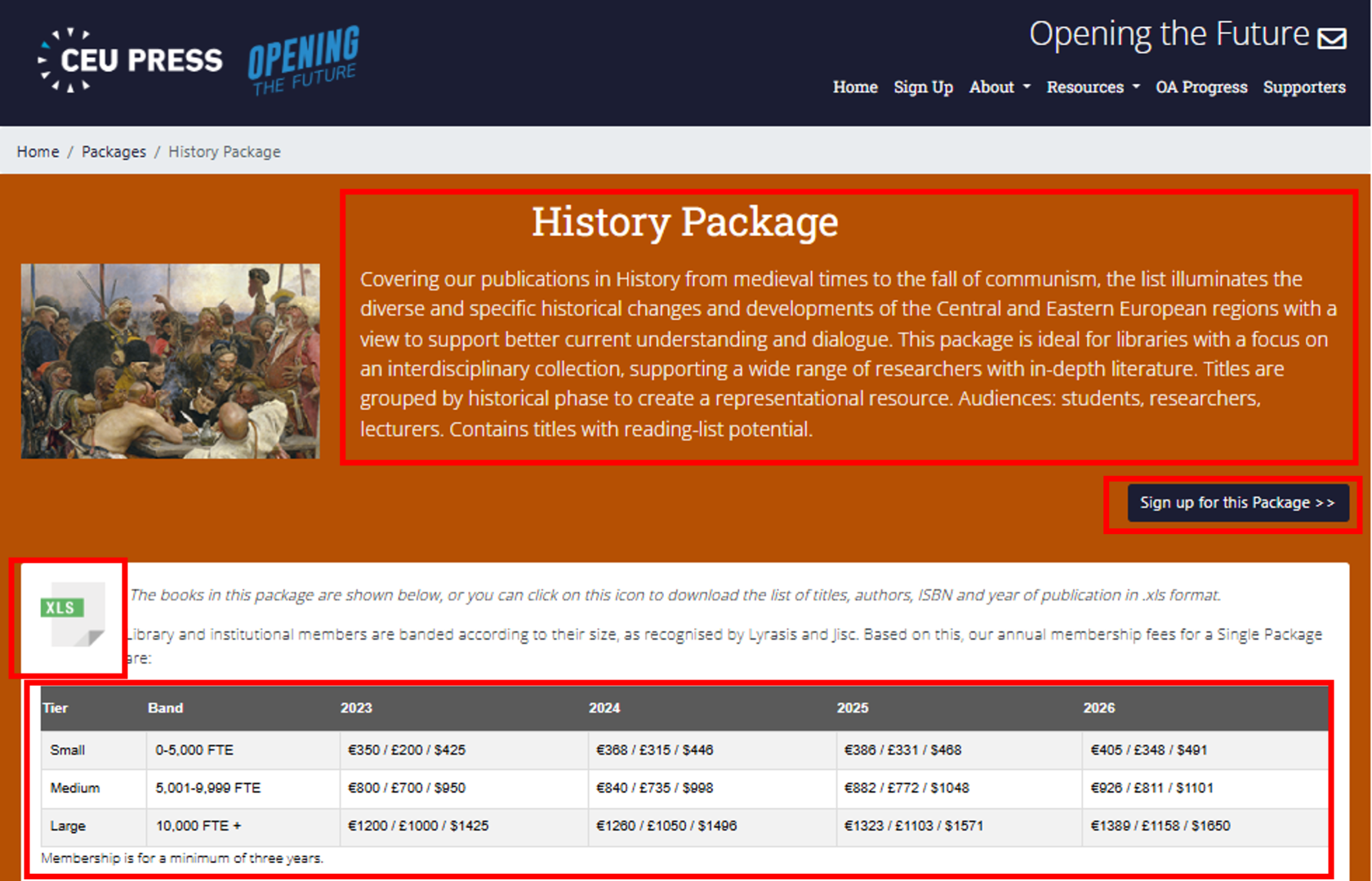](https://compass.copim.ac.uk/uploads/images/gallery/2025-02/displaying-critical-info-on-otf-1.png)
|
| Central European University Press chose to also display the backlist books grouped into sub-themes and with cover thumbnails. While this isn't strictly necessary it was another useful way of displaying the offer attractively to potential members. | [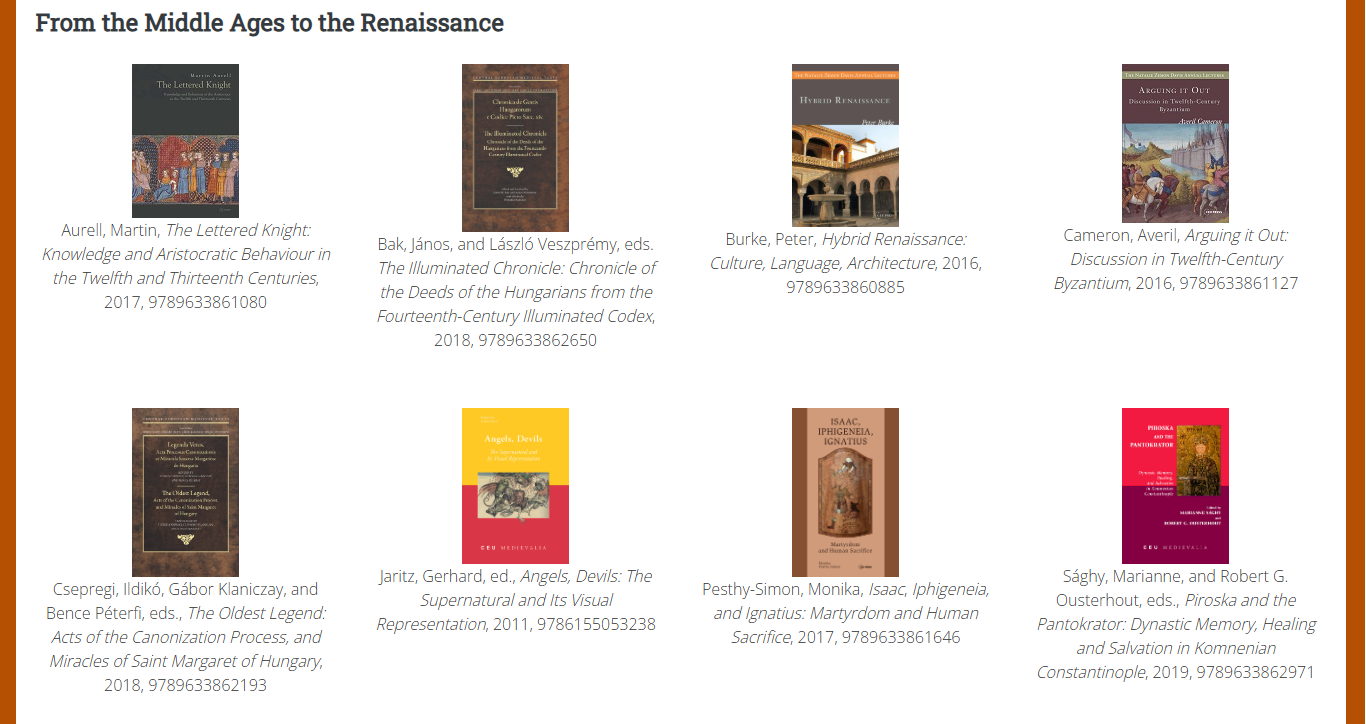](https://compass.copim.ac.uk/uploads/images/gallery/2025-01/backlist-titles.png) |
| A simple About page summarising the programme, the fees, benefits of membership, how it works and why it was implemented at that Press.
Note also the quick links to make it easy for potential members to sign up.
| [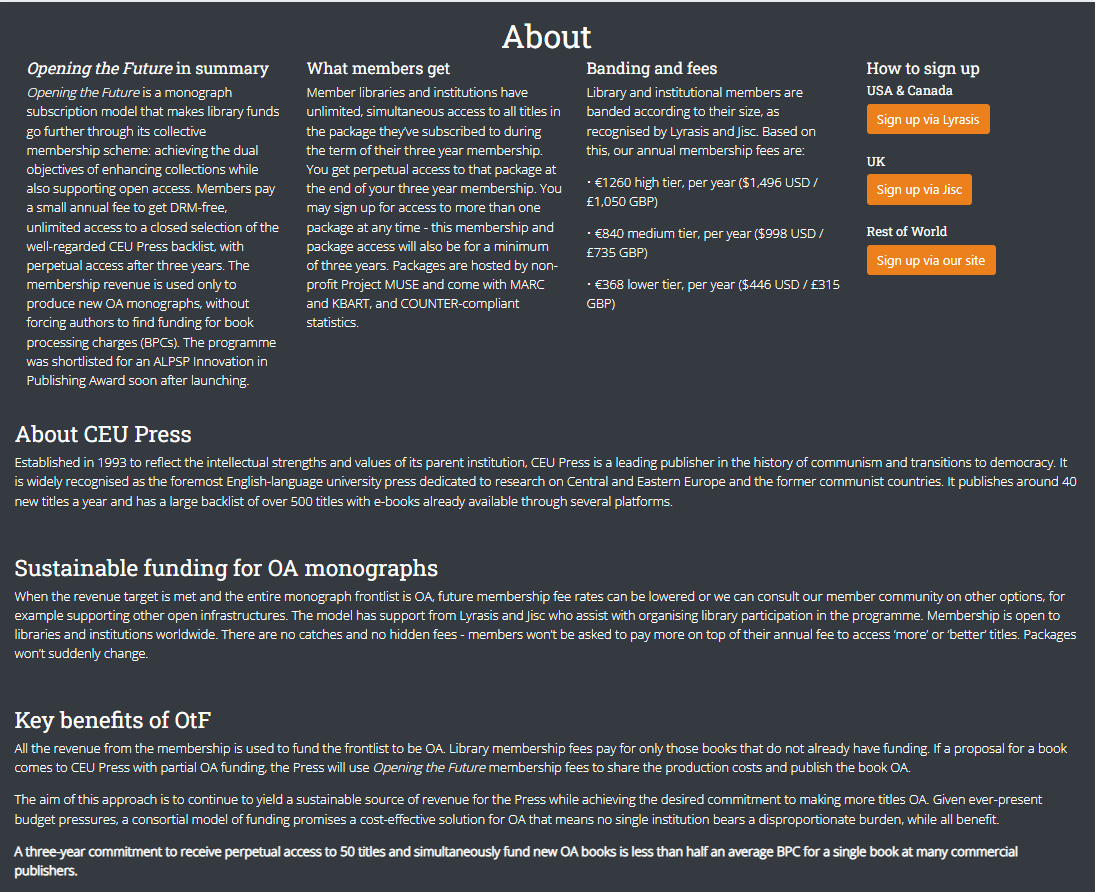](https://compass.copim.ac.uk/uploads/images/gallery/2025-01/about-the-press-page.png) |
| A comprehensive list of FAQs. | [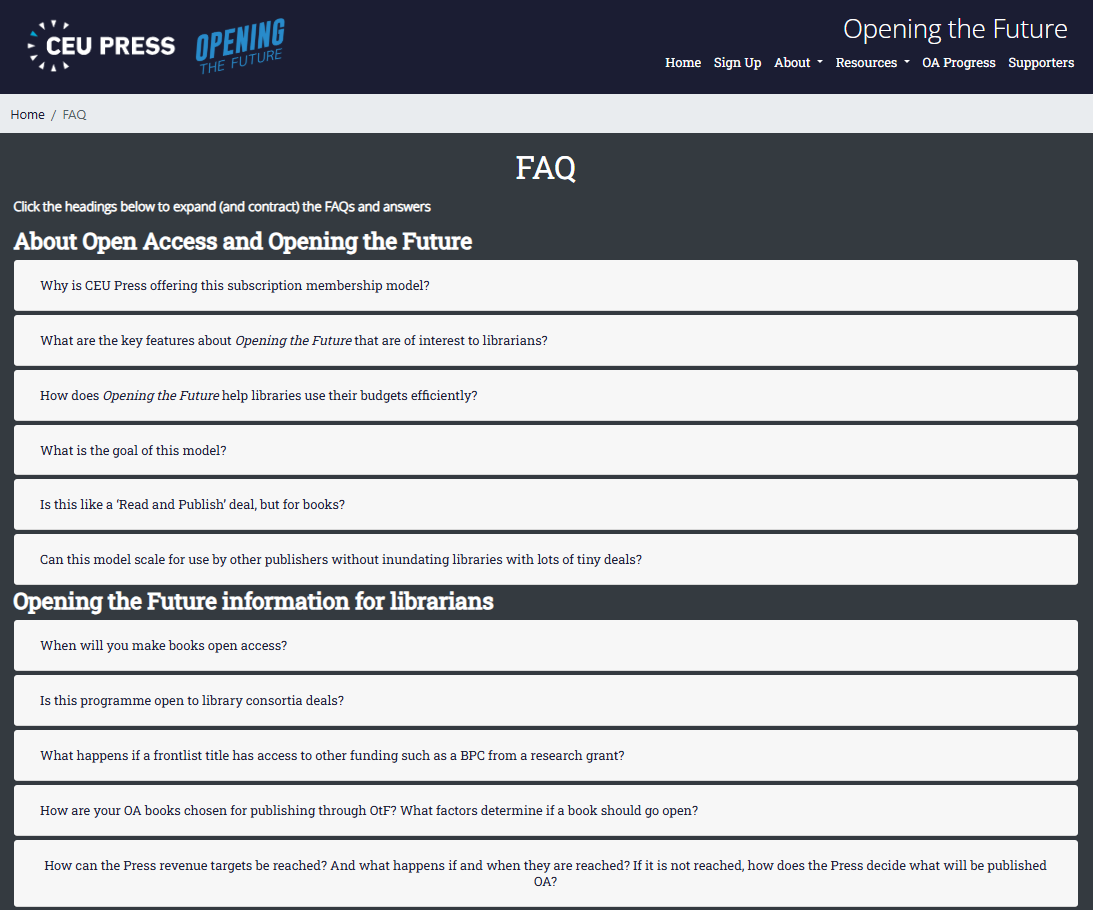](https://compass.copim.ac.uk/uploads/images/gallery/2025-01/image-of-faqs.png) |
| An updateable list of supporting members is crucial to show libraries who else is supporting and is a way of publicly saying thank you as well as demonstrating wide take-up of the model. | [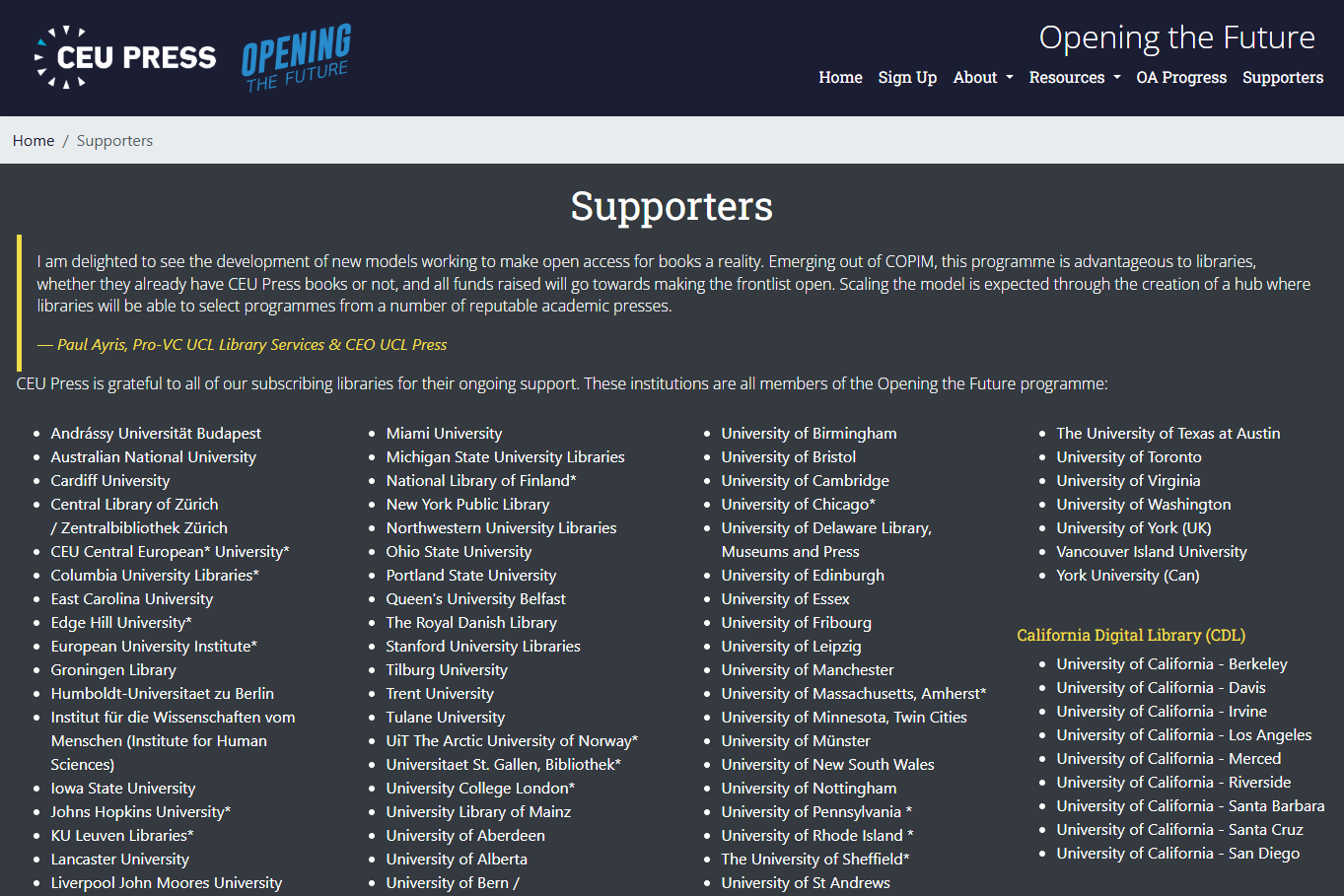](https://compass.copim.ac.uk/uploads/images/gallery/2025-01/supporter-page-image.png) |
| Also crucial is an updateable list of how many books have been funded by the programme, what they are, where they can be found, and what other books are funded/in the pipeline. This is key to demonstrating transparency and engendering trust between the press and the library community who are investing their budgets. | [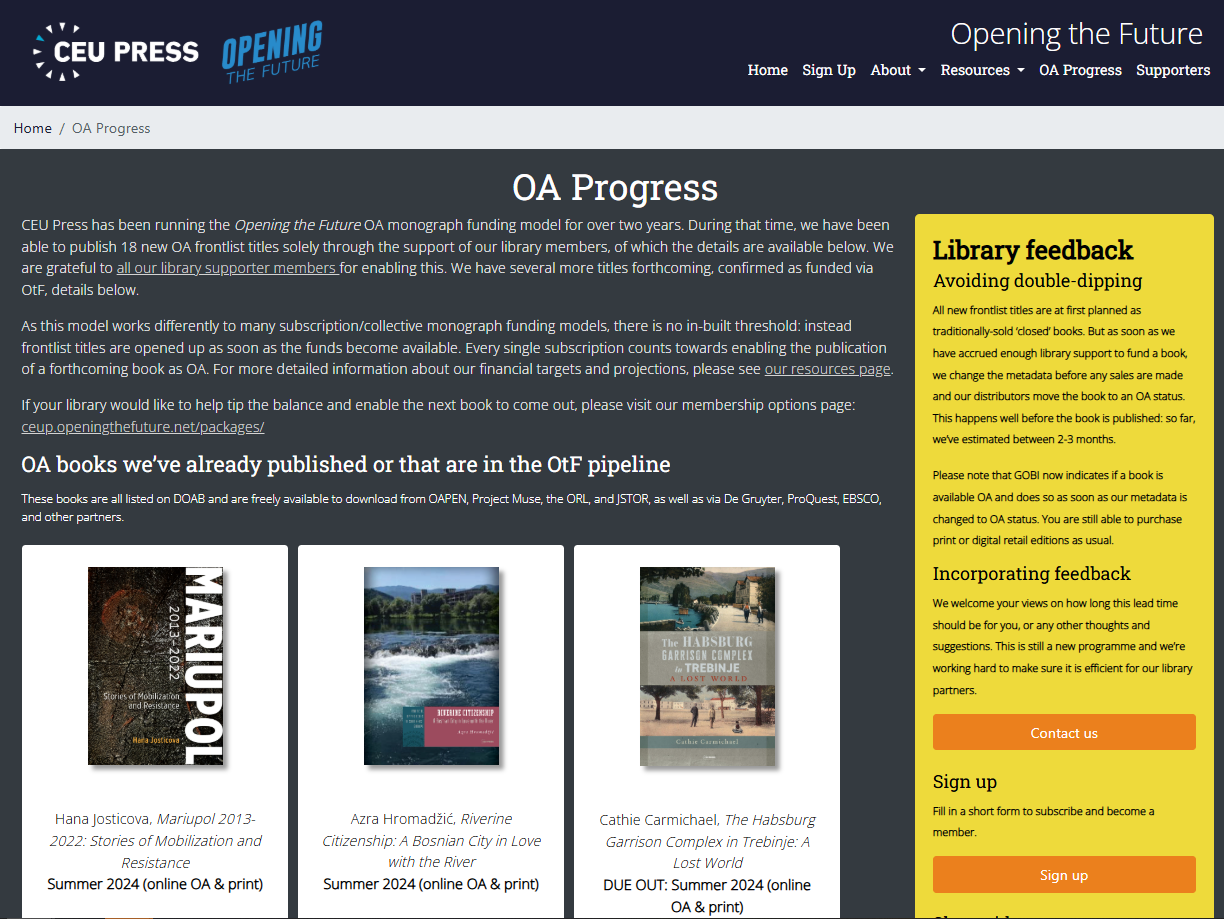](https://compass.copim.ac.uk/uploads/images/gallery/2025-01/oa-progress-page-image.png) |